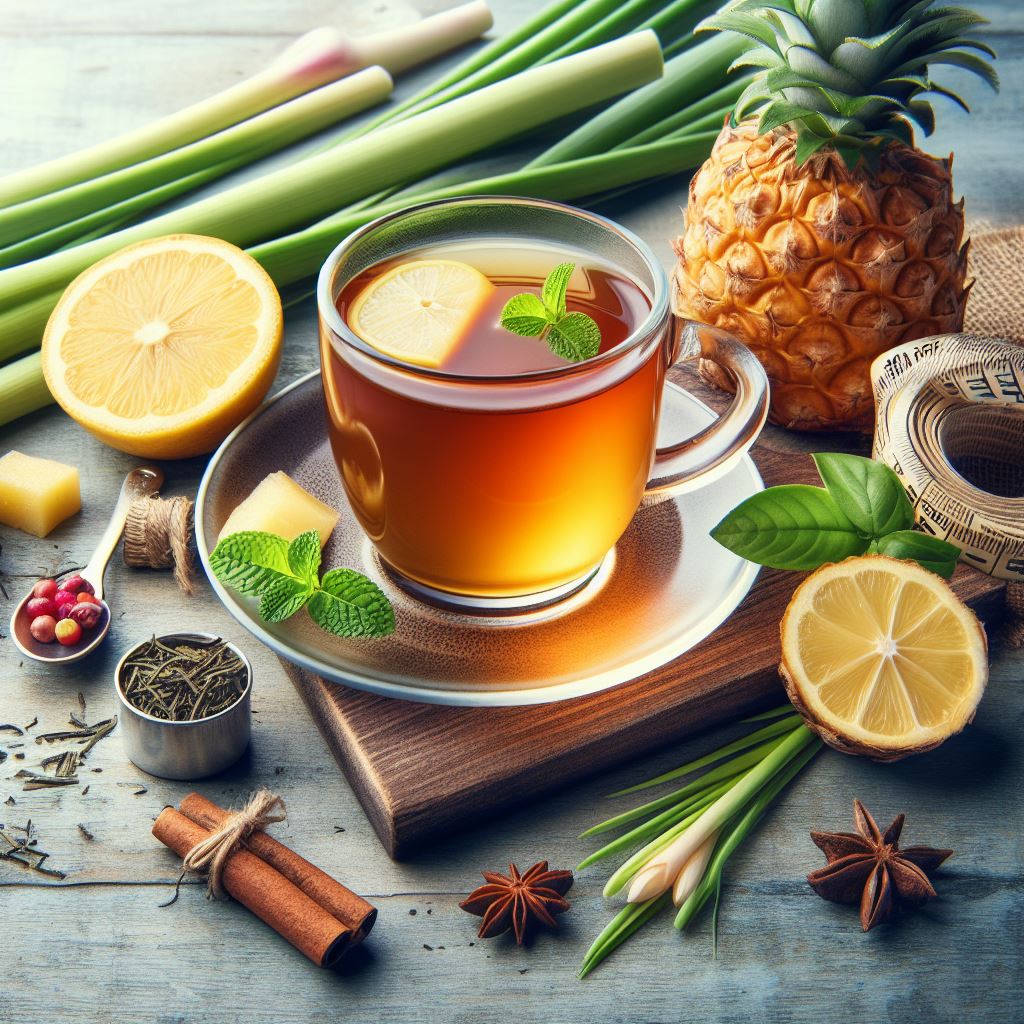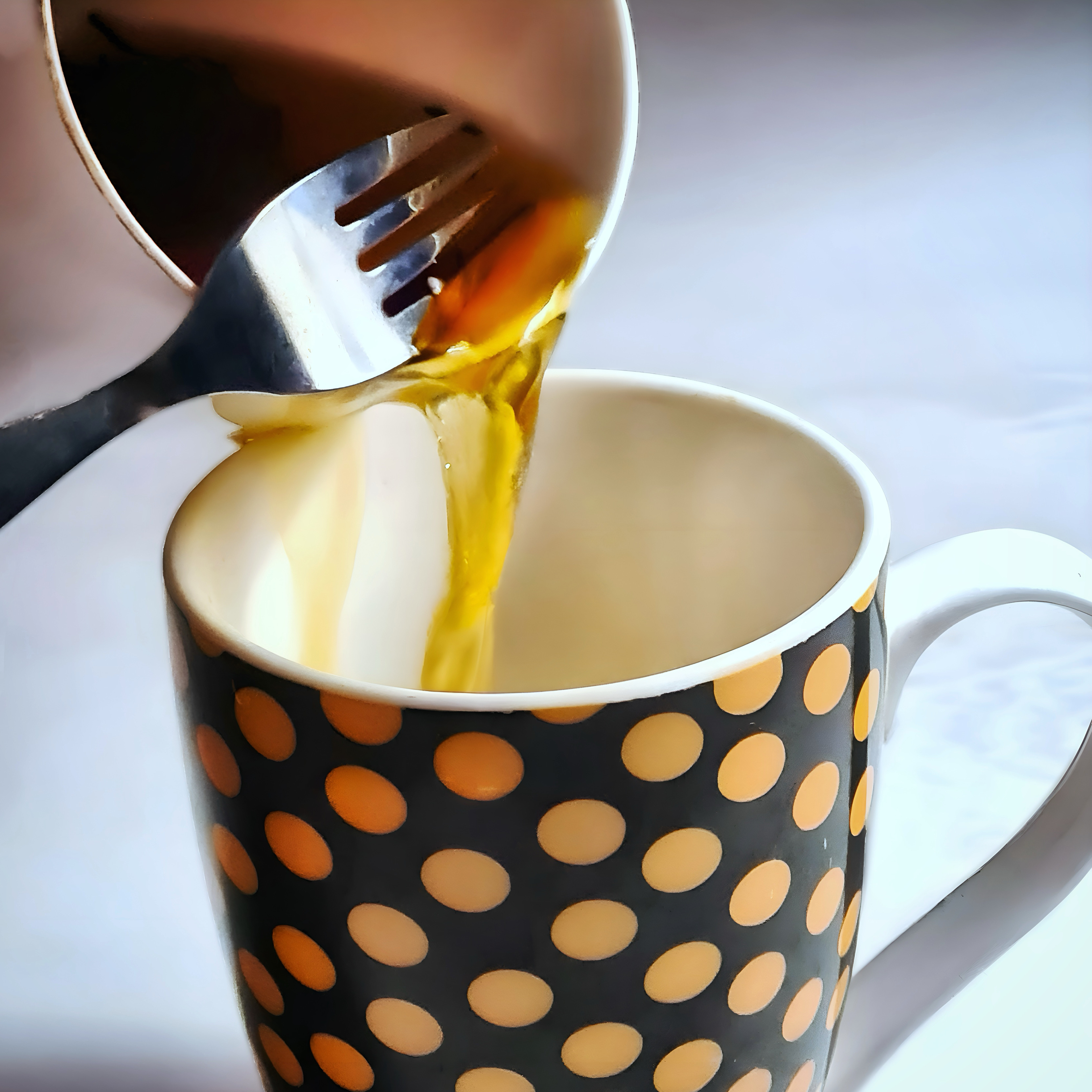Not only does tea taste great, but it also has many health benefits, especially when you are feeling sick. Whether you have a cold, a flu, a stomach ache, or a sore throat, there is a tea that can help you feel better. In this blog post, we will explore the different types of tea and which ones are good for which sickness, and also which ones may make certain sicknesses worse. We will also share some tips and tricks on how to brew the perfect cup of tea for your symptoms.

Types of Tea
There are many types of tea, but they can be broadly classified into four categories: black, green, white, and herbal. Each type has its own characteristics and benefits, as well as some drawbacks.
Black Tea for Sickness
Black tea is the most common type of tea in the world. It is made from the leaves of the Camellia sinensis plant, which are fully oxidized and fermented. Black tea has a strong flavour and a dark colour. It contains caffeine, which can give you an energy boost and help you stay alert. However, too much caffeine can also cause jitteriness, insomnia, and dehydration.
Black tea is good for sickness, especially for colds and flu because it can help clear your nasal passages and ease your cough. It also has antioxidants that can boost your immune system and fight inflammation. However, black tea can also make your stomach more acidic, which can worsen nausea and indigestion. If you have a stomach ache or an ulcer, you may want to avoid black tea or drink it with milk or honey.
Some examples of black tea are English breakfast, Earl Grey, Darjeeling, Assam, and Ceylon.
Green Tea for Sickness
Green tea is made from the same plant as black tea, but it is processed differently. The leaves are steamed or pan-fried to prevent oxidation and preserve their natural colour and flavour. Green tea has a mild flavour and a light green color. It contains less caffeine than black tea, but still enough to keep you awake and alert.
Green tea is good for colds and flu because it has antiviral and antibacterial properties that can help fight infections and sickness. It also has antioxidants that can protect your cells from damage and reduce inflammation. However, green tea can also interfere with some medications, such as blood thinners and antibiotics. If you are taking any medication, you may want to consult your doctor before drinking green tea.
Some examples of green tea are sencha, matcha, jasmine, gunpowder, and genmaicha.
White Tea for Sickness
White tea is the least processed type of tea. It is made from the young buds and leaves of the Camellia sinensis plant, which are dried without any oxidation or fermentation. White tea has a delicate flavor and a pale yellow color. It contains very little caffeine, which makes it ideal for relaxing and sleeping.
White tea is good for colds and flu because it has antiviral and antibacterial properties that can help fight infections. It also has antioxidants that can protect your cells from damage and reduce inflammation. However, white tea can also be expensive and hard to find. If you want to try white tea, you may have to look for specialty stores or online shops.
Some examples of white tea are silver needle, white peony, moonlight white, and snowbud.
Herbal Tea for Sickness
Herbal tea is not technically a type of tea because it does not come from the Camellia sinensis plant. Instead, it is made from various herbs, spices, fruits, flowers, or roots that have medicinal or aromatic properties. Herbal tea has a wide range of flavors and colors depending on the ingredients used. It does not contain any caffeine unless it is mixed with other types of tea.
Herbal tea is good for sickness because it can target specific symptoms or conditions with its natural ingredients. For example,
- Peppermint tea can soothe your throat and suppress your cough with its menthol content.
- Chamomile tea can relax your digestive muscles and treat issues like gas, indigestion, motion sickness, nausea, vomiting, and diarrhea.
- Echinacea tea can stimulate your immune system and shorten the duration of your cold or flu.
- Ginger tea can ease your nausea and vomiting with its anti-inflammatory and antiemetic effects.
- Lemon tea can provide you with vitamin C, which can boost your immune system and reduce the severity of your cold or flu.
However, herbal tea can also have some side effects or interactions with other medications or supplements. If you have any allergies, medical conditions, or are pregnant or breastfeeding, you may want to consult your doctor before drinking herbal tea.
Some examples of herbal tea are peppermint, chamomile, echinacea, ginger, lemon, lavender, rose, and turmeric.
More Benefits of Tea for Your Health
Besides helping you with your sickness, tea can also offer other benefits for your health in the long term. Here are some more reasons why you should drink tea regularly:
- Tea can lower your cholesterol levels and reduce your risk of heart disease and stroke. Studies have shown that drinking black or green tea can lower your LDL (bad) cholesterol and increase your HDL (good) cholesterol levels. Tea can also prevent blood clots and improve blood vessel function.
- Tea can lower your blood sugar levels and reduce your risk of diabetes. Studies have shown that drinking green or black tea can improve insulin sensitivity and glucose tolerance. Tea can also prevent oxidative stress and inflammation that can damage your pancreas.
- Tea can protect your cells from cancer. Studies have shown that drinking green or black tea can inhibit the growth and spread of various types of cancer cells. Tea polyphenols, such as epigallocatechin gallate (EGCG), are responsible for much of the anti-cancer ability of tea.
- Tea can boost your immunity and prevent infections. Studies have shown that drinking green or black tea can enhance your immune system and help you fight off viruses and bacteria. Tea can also modulate your gut microbiota and improve your digestive health.
- Tea can improve your mental alertness and mood. Studies have shown that drinking green or black tea can enhance your cognitive function and memory. Tea can also reduce stress and depression by influencing your brain chemicals.
- Tea can detoxify your body and promote weight loss. Studies have shown that drinking green or black tea can increase your metabolism and fat oxidation. Tea can also flush out toxins and waste from your body by stimulating your liver and kidneys.
- Tea can delay aging and improve your skin health. Studies have shown that drinking green or white tea can protect your skin from UV damage and wrinkles. Tea can also improve your hair health by preventing hair loss and promoting hair growth.
How to Brew the Perfect Cup of Tea for Your Symptoms
Now that you know the different types of tea and their benefits and drawbacks, you may wonder how to brew the perfect cup of tea for your symptoms. Here are some general tips and tricks to follow:
- Use fresh and high-quality tea leaves or bags. Avoid stale or dusty tea that may have lost its flavor and potency.
- Use filtered or spring water. Avoid tap water that may have chlorine or other impurities that can affect the taste and quality of your tea.
- Use the right water temperature. Different types of tea require different water temperatures to bring out their best flavor and benefits. As a rule of thumb, use boiling water for black tea, slightly below boiling water for green and white tea, and hot but not boiling water for herbal tea.
- Use the right amount of tea. Too much tea can make your brew bitter and too strong, while too little tea can make it weak and bland. As a rule of thumb, use one teaspoon of loose leaf tea or one tea bag per cup of water.
- Use the right steeping time. Different types of tea require different steeping times to extract their optimal flavor and benefits. As a rule of thumb, steep black tea for 3 to 5 minutes, green and white tea for 2 to 3 minutes, and herbal tea for 5 to 10 minutes. You can adjust the steeping time according to your personal preference.
- Add some extras. You can enhance the taste and benefits of your tea by adding some extras like honey, lemon, ginger, mint, cinnamon, or milk. However, be careful not to add too much or too many extras that may overpower the flavor and benefits of your tea.
Conclusion
Tea is a wonderful drink that can help you feel better when you are sick. By choosing the right type of tea and brewing it properly, you can enjoy a soothing and healing cup of tea that can ease your symptoms and boost your recovery. However, remember that tea is not a substitute for medical advice or treatment. If you have a serious or persistent illness, you should see your doctor as soon as possible.
We hope you enjoyed this blog post about tea for sickness. If you did, please share it with your friends and family who may also benefit from it. And don’t forget to subscribe to our newsletter for more tips and tricks on how to live a healthy and happy life.
Thank you for reading!
Check out our other articles:
- Fruit and Tea Combinations: How to Create Delicious and Healthy Drinks
- Soursop Tea: A Tropical Treat with Amazing Health Benefits
- How to Use Dates with Tea: A Sweet and Healthy Guide
- The Best Sweeteners for Tea: How to Find Your Sweet Spot
- Loose Leaf Tea vs Tea Bags: Which One is Better for Your Wallet and Wellbeing?
Sources:
- WebMD. (2022). Are There Health Benefits to Drinking Tea?
- Cleveland Clinic. (2021). The Best Teas to Drink for Your Health.
- Healthline. (2020). 10 Evidence-Based Benefits of Green Tea.
- Harvard Health. (2014). Health benefits linked to drinking tea.
- Good Housekeeping. (2022). 10 Best Teas for Cold and Flu Symptoms.
- Healthline. (2023). Tea for Colds: Types of Tea, Benefits, and Efficacy.
- Photo by Polina Tankilevitch:





Leave a Comment